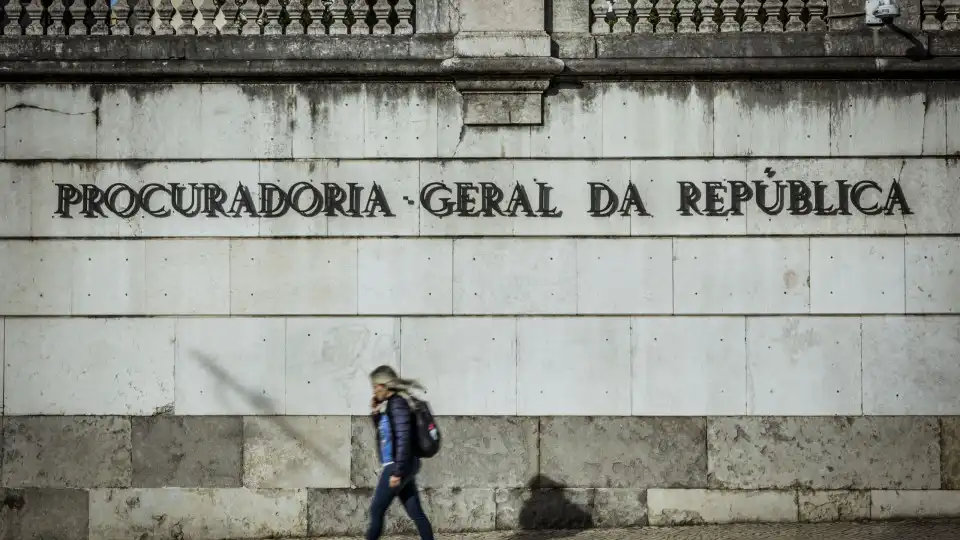Judge Carlos Alexandre stresses that Armando Pereira placed Hernâni Antunes “at the heart of Altice’s business on multiple occasions, as Hernâni himself acknowledges”.
If Armando Pereira, co-founder of Altice and his right-hand man, Hernâni Antunes, were to remain free, it would make it more difficult to obtain evidence and its veracity as well as the likelihood of the defendants changing their versions. These are the main grounds chosen by investigating judge Carlos Alexandre when he applied house arrest to the two main defendants in the so-called Operation Picoas.
At stake are suspicions of “vitiation of the Altice Group’s decision-making process, in terms of contracting, with practices harmful to the group’s own companies and to competition”, which point to private corruption in active and passive form. The State has also been harmed by tax fraud “in excess of €100 million”.
In the order – to which the ECO had access – the magistrate underlines that Armando Pereira placed Hernâni Antunes “at the heart of Altice’s business on multiple occasions, as Hernâni himself recognizes, so the dangers are evident, not only of liberalizing the contacts of all these gentlemen, among themselves, but also of allowing them an ambulatory freedom that allows them to exactly forge explanations or, in the limit, to evade the action of justice “.
In other words: the grounds of serious disruption of the ongoing investigation, as well as the danger of flight. Thus, the defendants were subject, cumulatively, to the following coercive measures: Term of Identity and Residence (TIR), prohibition of contact with each other and with all citizens and companies mentioned in the indictment order (with the exception of Cristina Couto, Melissa Antunes and Vânia Couto, with respect to Armando Pereira) and also the Obligation to Remain in Housing. This house arrest which will be controlled by GNR guards, placed at the door of his home.

The Public Prosecutor’s Office (MP) had requested pre-trial detention for the defendant Hernâni Vaz Antunes. And in relation to Armando Pereira, Rosário Teixeira proposed to the investigating judge Carlos Alexandre the application of house arrest, which was applied by the judge, and this measure could be converted or replaced by a bond of ten million euros. A proposal that has not been taken up by Carlos Alexandre.
The reasons in the case of Armando Pereira
Carlos Alexandre then says that Armando Pereira “is not only a rich man but the truth is that by the standards of the common man, the average man, who is governed by the rules of common experience and the normality of what happens, a man who travels in a private jet, has houses in various geographies, where he has bank accounts and even a special regime from the tax point of view “, if he has to choose, at this moment, where would he choose to reside,” in any paradise where he can obviate Interpol or Europol or in Portugal?”, asks the judge.

In addition to this danger of flight, the defendant “has the ability, using all the loyalty he has gained over the last decades at Altice, where contrary to what the open sources say, in which it is reported that he no longer has any shareholding in that multinational, he himself says that he has 22% of the share capital, he can easily conform explanations and continue his facilitation activity”.
Stressing that the danger of disturbing the investigation is “high”, since only at an “advanced stage of the interrogation did the defendant recognize that the companies that were being listed were owned by the defendant Vaz Antunes”.
In addition, although the co-founder of Altice does not formally hold any position in the Group, “he has an enormous capacity to determine the various administrations of the companies that make up the Group, even in the face of the ongoing movements in the Altice Board and as a result of the loyalty of those appointed by him”.
That capacity for determination and influence within Altice constitutes a “clear danger of disturbing the investigation, since it appears that the defendant may order the destruction of documents that have not yet been seized and condition his employees in the statements still to be made in the context of the investigation”.
Carlos Alexandre – following what was presented by the Public Prosecutor’s Office (MP) – says that the danger of continuing criminal activity, “although it exists”, now seems “to be more mitigated in view of the movements made within the Altice Group, with the removal of many of the actors under investigation and with the close monitoring that the hiring will have, namely, by the majority shareholder, Patrick Draghi.
Therefore, “we believe that the application of a non-custodial measure of restraint is not sufficient at this time, even if it is not carried out in a prison environment, but in the defendant’s home in national territory”.
What about Hernâni Antunes, the main defendant?
In this case, the magistrate recalls that this was the defendant who “did not present himself or give notice of where he was, until the night of July 14, when his lawyer contacted the authorities and the defendant came to present himself and was arrested and taken to Lisbon”, writes Carlos Alexandre. He does not fail to praise or refer to the arguments of lawyer Rui Patrício, a partner at Morais Leitão, who is right when he “says that Hernâni’s role and the correspondence with Armando’s actions are not very different”, as well as, in the eyes of the criminal investigating judge, the dangers pointed out by the MP and which the judge recognizes are not different .
Hernâni Antunes’ lawyer is also “right when he says that Hernâni collaborated and even found it strange that Armando Pereira wanted to distance himself from him when for everything he needed, whether it was the provision of houses, cooks, cards for the use of ladies of Armando Pereira’s relations, or even to forge invoices, for the benefit of Armando Pereira’s son-in-law or his father, he was willing to do anything, even to buy a car for one of the ladies, so that Armando Pereira would never be exposed. The JIC wonders if this is not fiduciary what is it?”, he asks rhetorically.
Carlos Alexandre also reinforces the collaboration of Armando Pereira’s right-hand man over almost three days, “clarifying his participation in the way he understood to be the most appropriate also to his interests, but the fact is that, in some cases of which the distribution of commission earnings for television rights was a happy example, the defendant went beyond what the indictment allowed to infer”.
However, this does not prevent him from “leavingthe national territory now that he is aware of the facts and the criminal penalties that correspond to them, and we cannot confirm at this stage whether or not it is ontologically impossible for him tocontinue any activity whatsoever”. Mr Hernani Antunes is a person with a remarkable facility for establishing contacts and gaining sympathy, as can be seen from the indicative evidence collected and the sound content of his questioning’.
That is why Carlos Alexandre considered the house arrest applied to both defendants to be “adequate, proportional and sufficient” to guarantee the dangers invoked by the MP.
Finally, as for the defendant Vaz Antunes, the court considers “that the danger of disturbing the investigation is very high and has already been consummated”. In fact, “the defendant was warned of the risk of being searched and instructed some of the people close to him, including the defendant Gil Loureiro, to eliminate and hide evidence that could be unfavorable to him, and even continued to be absent from the places of residence of some of his collaborators”.
On the other hand, it is “notorious the ability of the defendant to condition the determination of his collaborators, since they live in his economic dependence, which may make the success of any future investigation to be carried out unfeasible, and may even, with the financial means at his disposal, try to place those same collaborators outside Portugal, or simply deliver significant as a counterpart to their silence and absence”.
It is true that the defendant “confessed to a large part of the facts that were imputed to him and identified the beneficiaries of many of the undue payments he made to win markets and contracts. However, as mentioned above, there is a duality of behavior, since at the same time that he confesses to undue payments in favor of Benchtrit and Boubazine, it is found that he allowed them to escape, since it is evident that the latter two were in Portugal, together with HERNÂNI, on the date the search was initiated. In turn, the danger of continuing criminal activity is evident and results from the defendant’s own statements”.
Any non-custodial measure, “such as the obligation to report regularly and a simple prohibition of contact, are completely inappropriate at this stage, since they do not make it possible to deal with the danger of continuing criminal activity, the danger of disturbing the course of the investigation and the danger of flight”.
The remaining defendants in Operation Picoas
The defendant Jéssica Antunes, daughter of Hernâni Vaz Antunes, was required to appear every two weeks at the PSP police station near her residence, was forbidden to leave Portugal, with the seizure of her passport, was forbidden to have contact with the defendants Armando Pereira, Ricardo Sobral, Duarte Loureiro and Gil Loureiro and with all employees of all his father’s companies and the Altice Group (including those who have since been suspended), a ban on the practice of administrative acts, including the handling of accounts in banks in the United Arab Emirates and the provision of a bond of 500 thousand euros.
The defendant Gil Loureiro is subject, cumulatively, to the obligation of bi-weekly presentations at the PSP police station, a ban on leaving, with delivery of his passport, a ban on contacts with the defendants Armando Pereira, Ricardo Sobral and Jéssica Antunes and, as well, with all employees of all companies of the defendant Hernâni Antunes, a ban on acts of administration, including handling accounts in the Dominican Republic and a bail of 250 thousand euros.
Carlos Alexandre also decided that SEF and the entity managing the helicopter, which the defendant Armando Pereira has at his disposal in Guilhofrei, should be informed to seize it “for its proper place”.
At stake are suspicions of “vitiation of the Altice Group’s decision-making process, in terms of contracting, with practices harmful to the group’s own companies and to competition”, which point to private corruption in active and passive form. The State has also been harmed by tax fraud “in excess of €100 million”.
The Central Department of Investigation and Criminal Action (DCIAP) of the Public Prosecutor’s Office (MP), in collaboration with the Tax Authority (AT), launched on July 13 an operation with about 90 home and non-home searches.
Six crimes of aggravated active corruption in the private sector, with reference to Altice employees (such as Luís Alvarinho, Alexandre Fonseca), one crime of passive corruption in the private sector, with reference to Altice decisions, four crimes of money laundering and still crimes of falsification of documents, not yet fully accounted for. These are the crimes imputed to Armando Pereira, co-founder of Altice.
Hernâni Vaz Antunes, Pereira’s right-hand man, will have against him seven crimes of aggravated active corruption in the private sector (with reference to Armando Pereira and Alexandre Fonseca), eight crimes of tax fraud, six crimes of money laundering and also falsification of documents and false statements, not yet fully accounted for. In total there are more than 35 crimes that the MP suspects in the so-called ‘Operation Picoas’.
At stake are also indications of “abusive use of the reduced taxation applied in terms of IRC in the Madeira Free Zone” through the fictitious tax domiciliation of people and companies, to which is added the suspicion of the use of offshore companies, indicating the crimes of money laundering and forgery.









